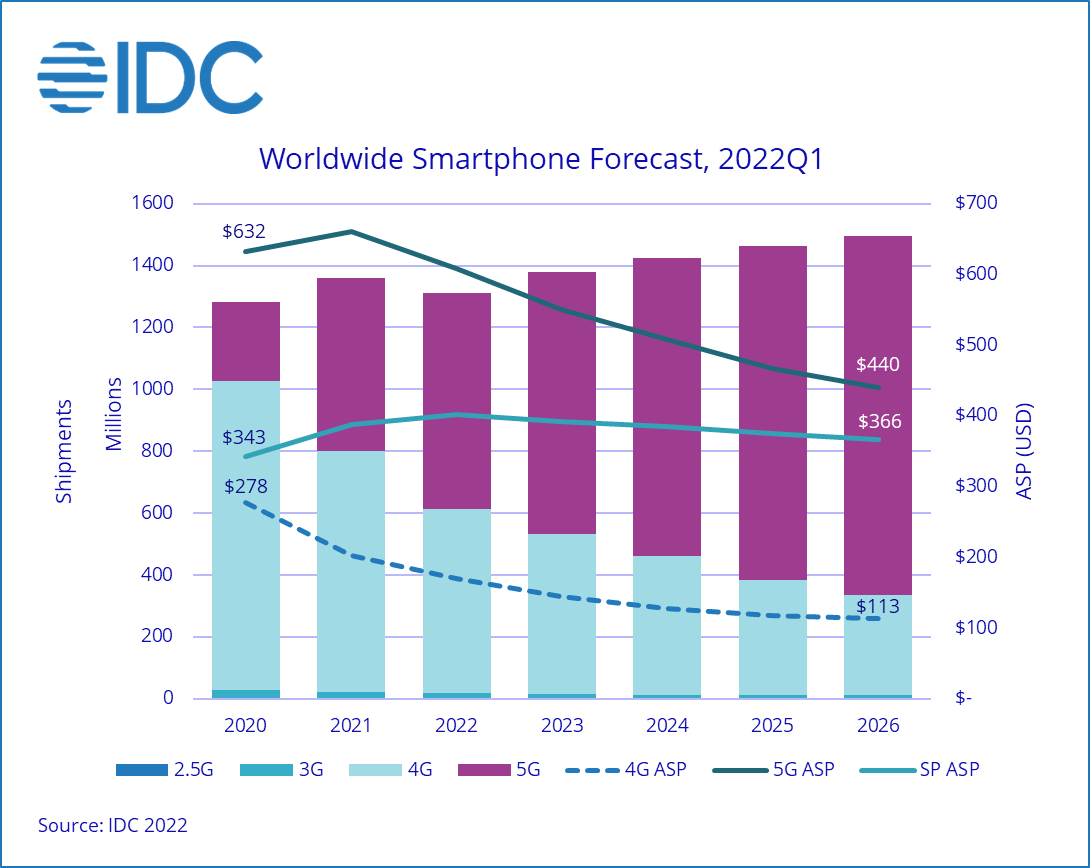While IDC’s latest Worldwide Quarterly Mobile Phone Tracker forecast indicates that global smartphone shipments are expected to decline 3.5% to 1.31 billion units in 2022, IDC believes Apple will be the least impacted by the decline.
The decline prediction, caused by increasing challenges with supply and demand, is significantly reduced from the previously predicted 1.6% growth.
Apple is expected to be the “least impacted vendor” due to its complete control over its supply chain and because iPhone devices are positioned in the higher-priced smartphone segment and are not as impacted by macroeconomic issues like inflation.

Smartphone vendors are faced with weakening demand, supply chain issues, and geopolitical tensions, resulting in cutbacks. IDC says that it expects the challenges to ease by the end of the year, barring any new setbacks. Semiconductor supply issues are expected to ease in the second half of 2022. The 2023 market is expected to recover with 5% growth.
“The ongoing semiconductor supply issues will ease up in the second half of 2022. On the SoC side, 4G SoC supply has been tight, but the market continues to shift towards 5G SoCs,” said Phil Solis, research director in IDC’s Enabling Technologies and Semiconductors team. “The bigger problem has been the tight supply of components such as PMICs, display drivers, and discrete Wi-Fi chips. Capacity is being increased for these semiconductors that are made in higher process nodes and newer versions of Wi-Fi chips are being made with newer process nodes. At the same time, demand is dropping. Combined, these supply and demand changes will put the market more in equilibrium.”
Apple was faced with issues in meeting demand for its iPhone, iPad, and Mac models in the fiscal second quarter of 2022, due to supply constraints. The company expects those issues to continue during the fiscal third quarter. The Mac and iPad have been affected more heavily than the iPhone.


